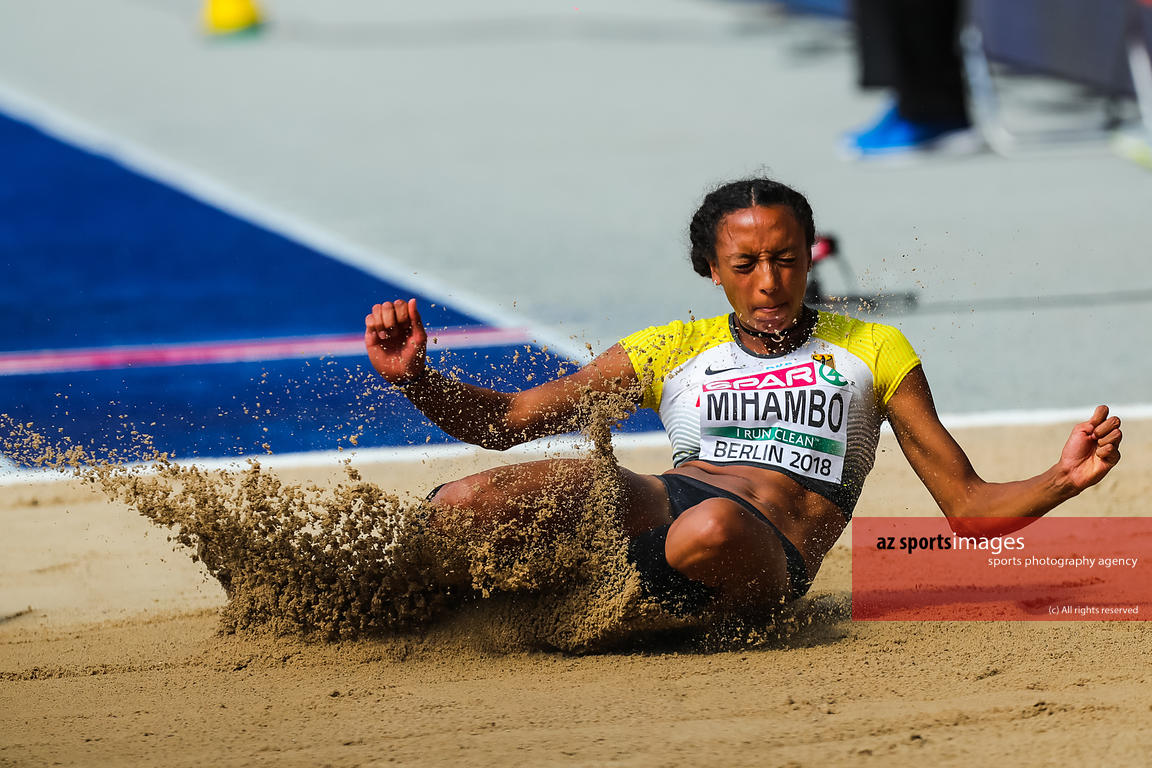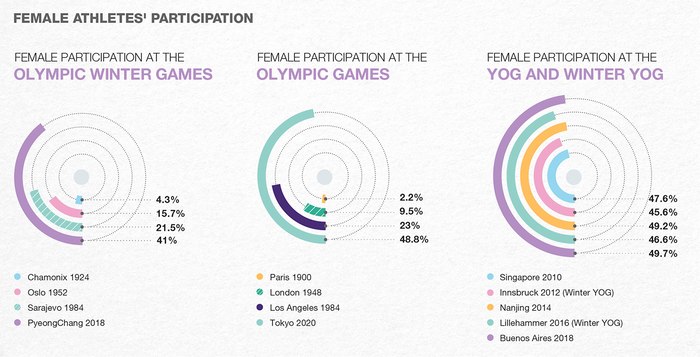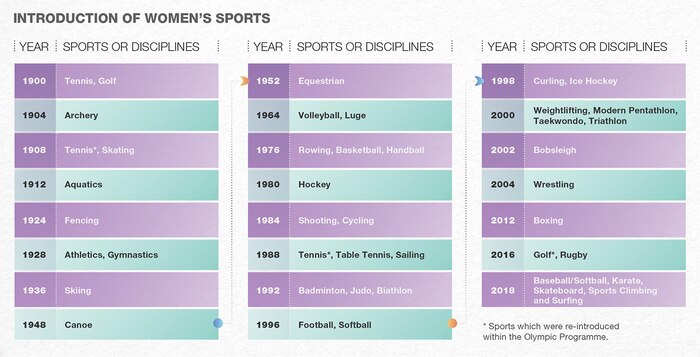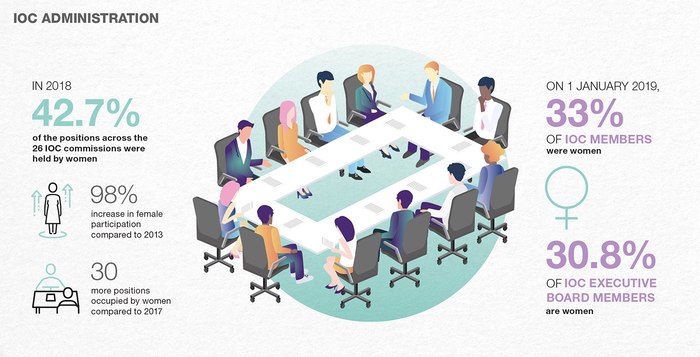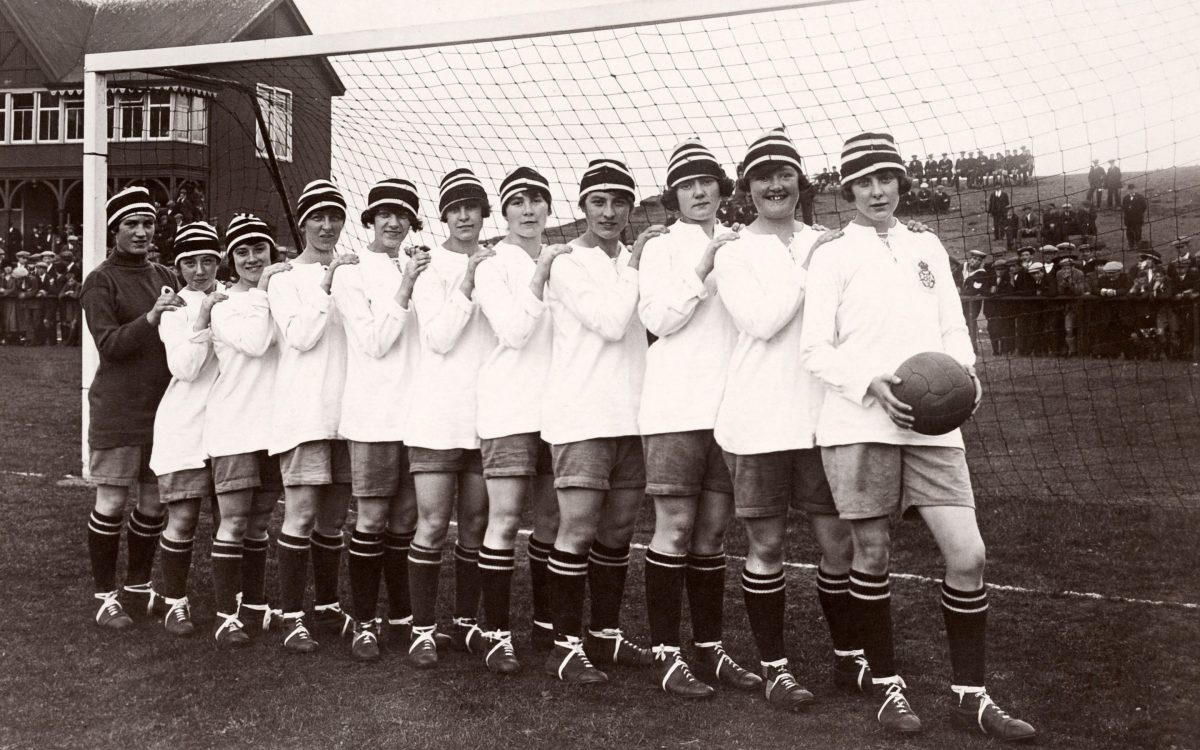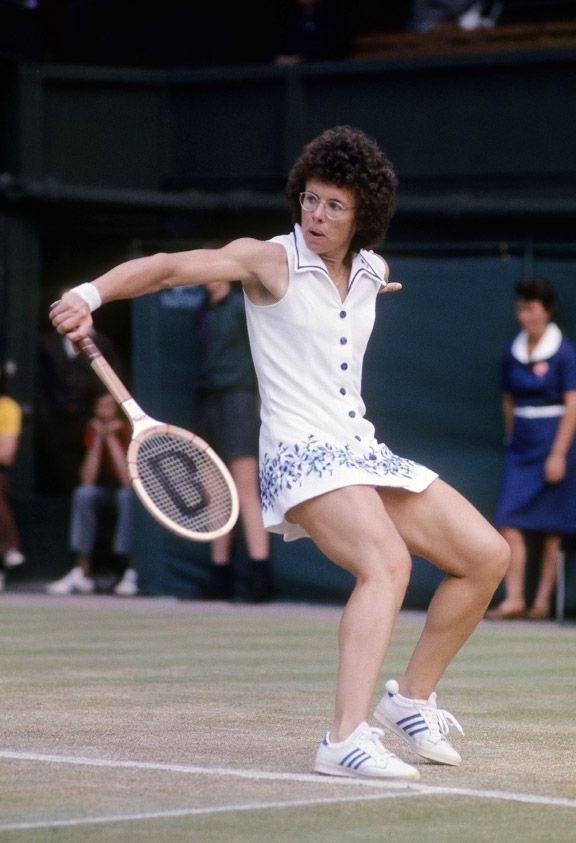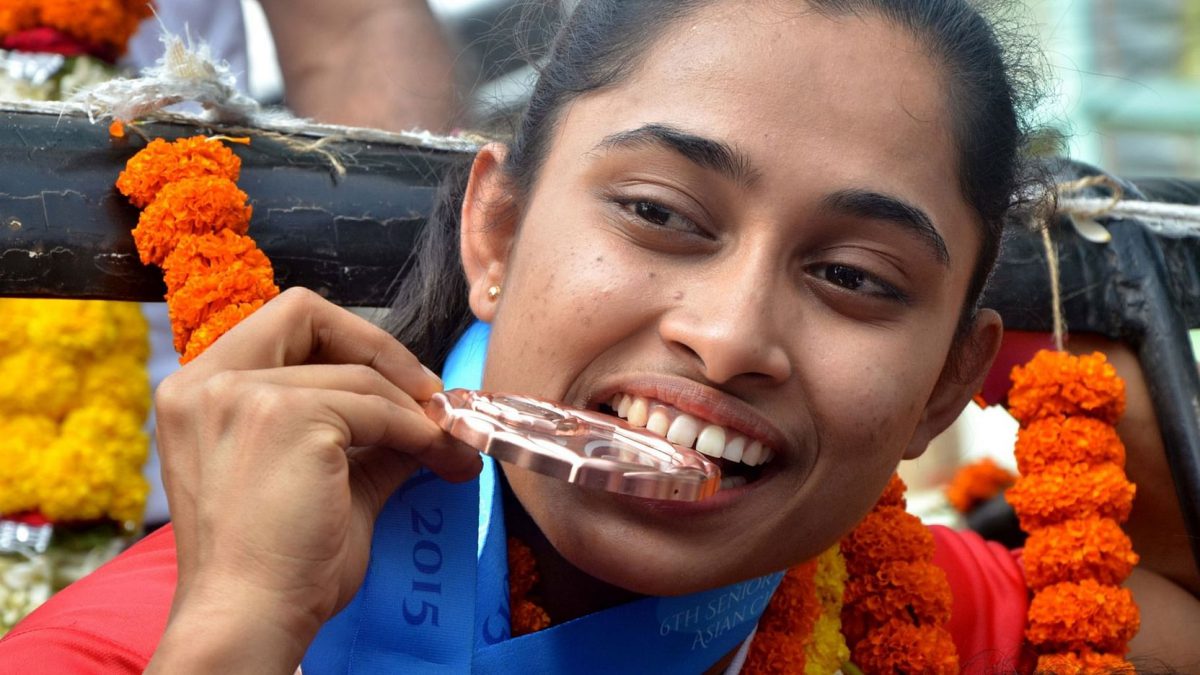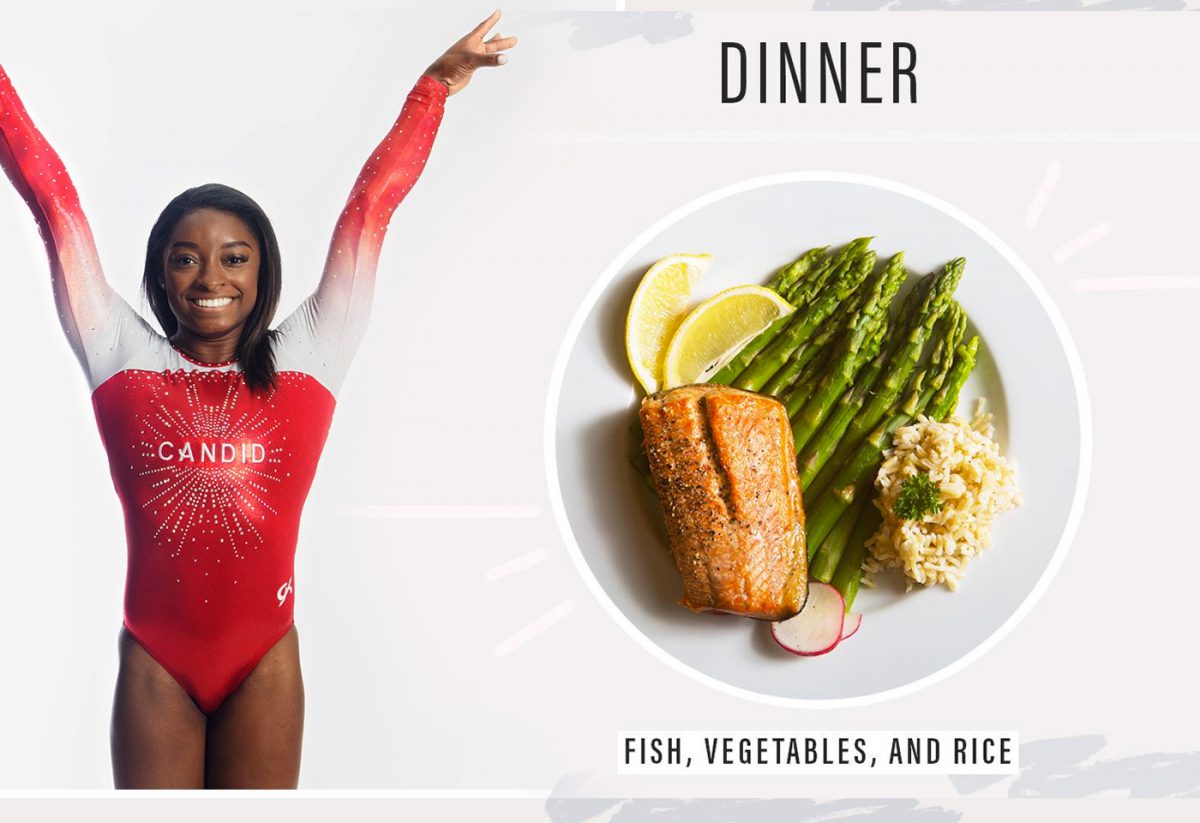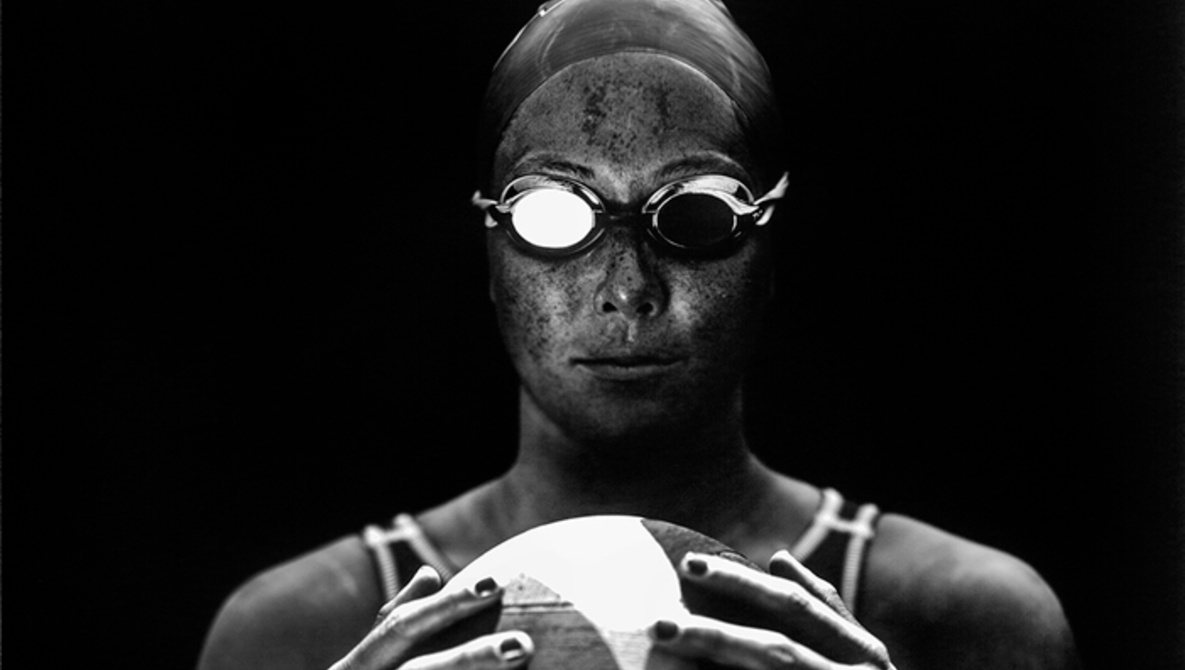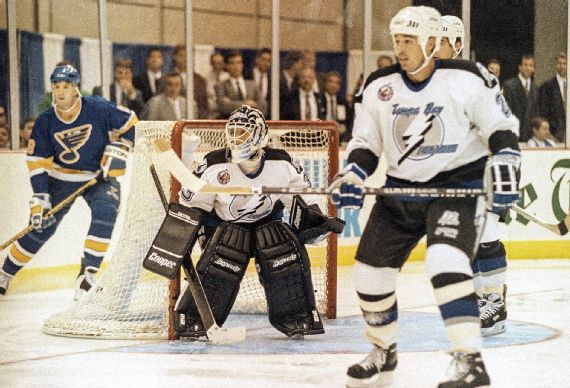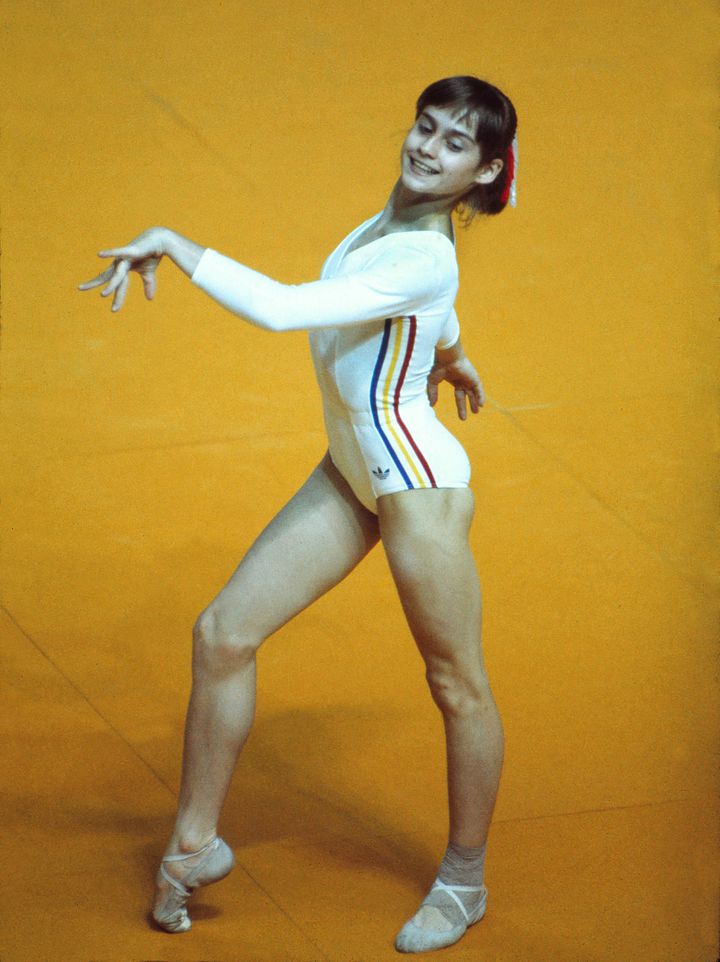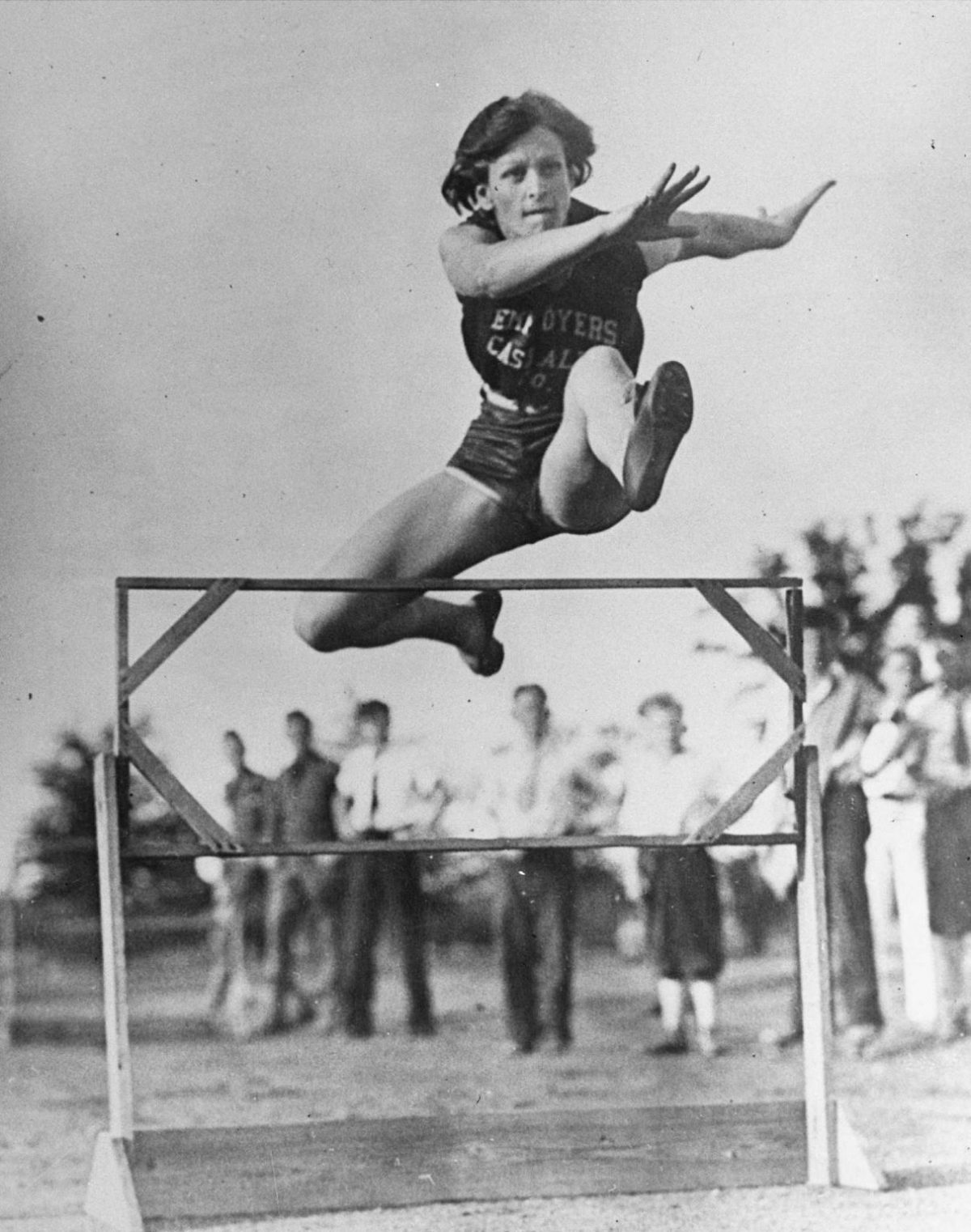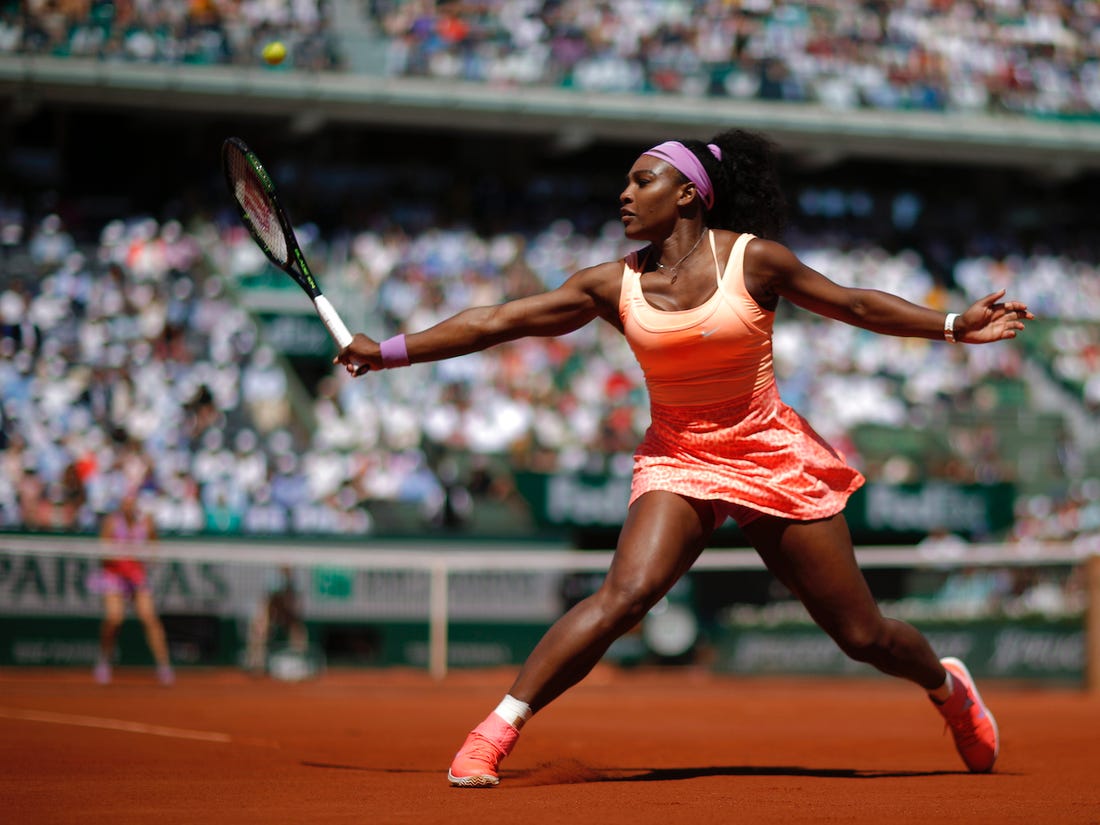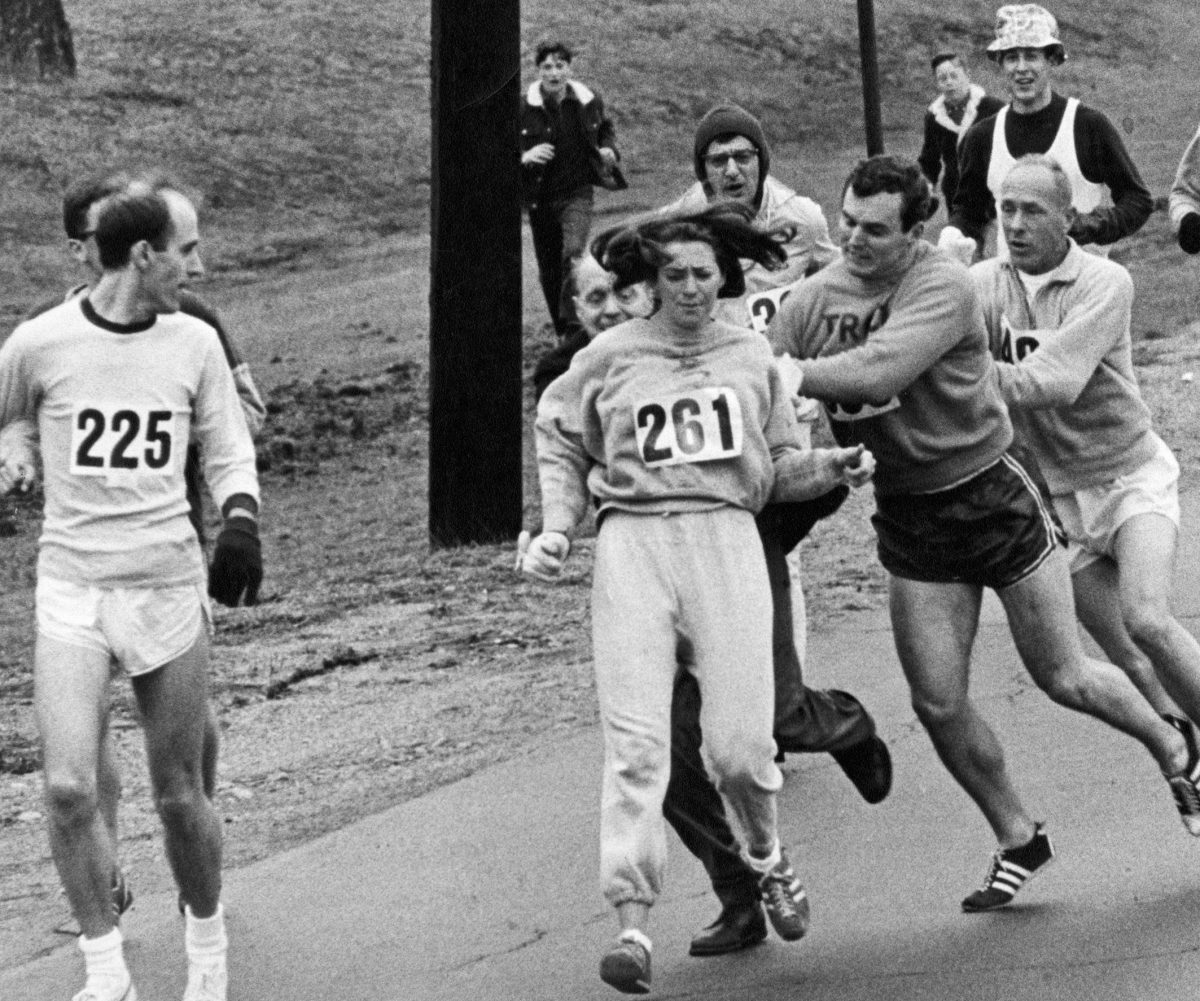The IOC was founded more than a century ago to harness the power of sport at the service of humanity. Traditionally, women were not allowed to participate in the Games, which were exclusively for men. Times have changed, and the IOC has played an important role in establishing a positive trend to enhance women’s participation in sport.
Over the last 30 years, the IOC has been advocating for the participation of women at all levels, encouraging National Olympic Committees (NOCs) and International Federations (IFs) to enhance the presence of women in sport at all levels.
This section offers a historical timeline of women’s participation in Olympic sport and leadership.
Women at the GamesThe success of the IOC Women in Sport Policy is noticeable in terms of women’s participation in the Games. The number of women competing at the Games has increased significantly over the last 30 years – from 26.1 per cent at Seoul 1988 to a record 45.2 per cent at Rio 2016. In October 2018, the Youth Olympic Games (YOG) Buenos Aires 2018 was the first fully gender balanced Olympic event ever.
One of the biggest drivers of this change has been the IOC’s commitment to creating more opportunities for female athletes by expanding the Olympic programme to include more women’s events. Since 1991, any new sports seeking to be included on the Olympic programme have been required to include women’s events, while the IOC has also worked closely with the International Sports Federations (IFs) to stimulate women’s involvement in sport through more participation opportunities at the Olympic Games.
Most recently, changes to the event programme for Tokyo 2020 will see female participation rise to a projected 48.8 per cent, with double the number of mixed events compared to Rio 2016, while Beijing 2022 will also see an increase in women’s and mixed events to reach a record 45.44 per cent female representation at a Winter Games.
The IOC is not only seeking to achieve statistical parity, but also understands that every opportunity provided for women’s sport and female athletes in the Olympic Games has a flow-on impact for the promotion of gender equality, and the opportunities that are given to women’ athletes around the world.
In Rio, gender equality was also for the first time part of the Olympic social legacies, through the ‘One Win Leads to Another’ project, a community-based sports programme born from the partnership with UN Women. Read the story here.
There is also an increasing number of NOCs developing programmes and scholarships to narrow the gender gap in sport. Some of these projects are developed with the direct support of the IOC through Olympic Solidarity.
There is also the result of an increasing number of NOCs developing programmes and scholarships to narrow the gender gap in sport. Some of these projects are developed with the direct support of the IOC through Olympic Solidarity.
The IOC fully recognises that gender equality at the Olympic Games is not enough. That is why the IOC invests in bringing more women into sports leadership.
The participants to the 5th IOC World Conference on Women and Sport in 2012 highlighted that the number of women participants in sport has grown exponentially and that many programmes have been put in place and resources committed to ensuring that women are trained and educated for leadership positions. However, they regretted that the number of women being elected in decision-making positions has not increased at the same pace as in the participation in the field of play.
The participants’ final declaration highlighted:
- the need to bring more women into management and leadership roles;
- the importance to widely publicise the IOC’s decision to link gender equality to good governance within the Olympic Movement;
- the need to increase collaborations and partnerships, especially with UN organisations, to promote gender equality.
Inspired by the Los Angeles Declaration, and following the release in 2018 of the IOC Gender Equality Review Project including 25 action-orientated recommendations, increasing the number of women in decision-making positions within the Olympic Movement has been highlighted as one of the major targets of the IOC.
“If we want to see change, it has to come from the top down. That’s why it is vital that the IOC is seen as a role model. If the IOC was not taking this position, it would be very difficult to lead the change. But we are fortunate to have the backing of the IOC President, Thomas Bach, and there has been a real focus on reorganising and reviewing the issue.”
Marisol Casado, IOC Member and sole female president of a Summer International Federation with a sport on the Olympic programme
The IOC continues to set an example for other sporting bodies by increasing the number of women in its own decision-making positions. Female representation on IOC commissions has now risen to 42.7 per cent, a historic high that equates to a 98 per cent increase since 2013. In 2018, women held 30 more positions across the IOC’s 26 commissions than they did in 2017, with female members present on each commission, while the IOC EB has seen an increase in female members from 21.4 per cent in 2017 to 30.8 per cent in 2018. As of 1 January 2019, 33 per cent of IOC Members are women.
In addition to increasing female representation within its own decision-making positions, the IOC has also initiated leadership forums and training programmes for women in IFs, National Federations and National Olympic Committees (NOCs) to help prepare those in middle and senior management positions to stand for election to leadership positions.
In October 2017, the IOC also launched the Advancing Women in Sport online platform – an online community and network for gender equality advocates, which aims to raise continued awareness of the issue within the Olympic Movement, while also driving the implementation of the Gender Equality Recommendations. The network is committed to sharing best practice, success stories, news and events, as well as providing a solutions-based approach to achieving gender equality both on and off the field of play.


